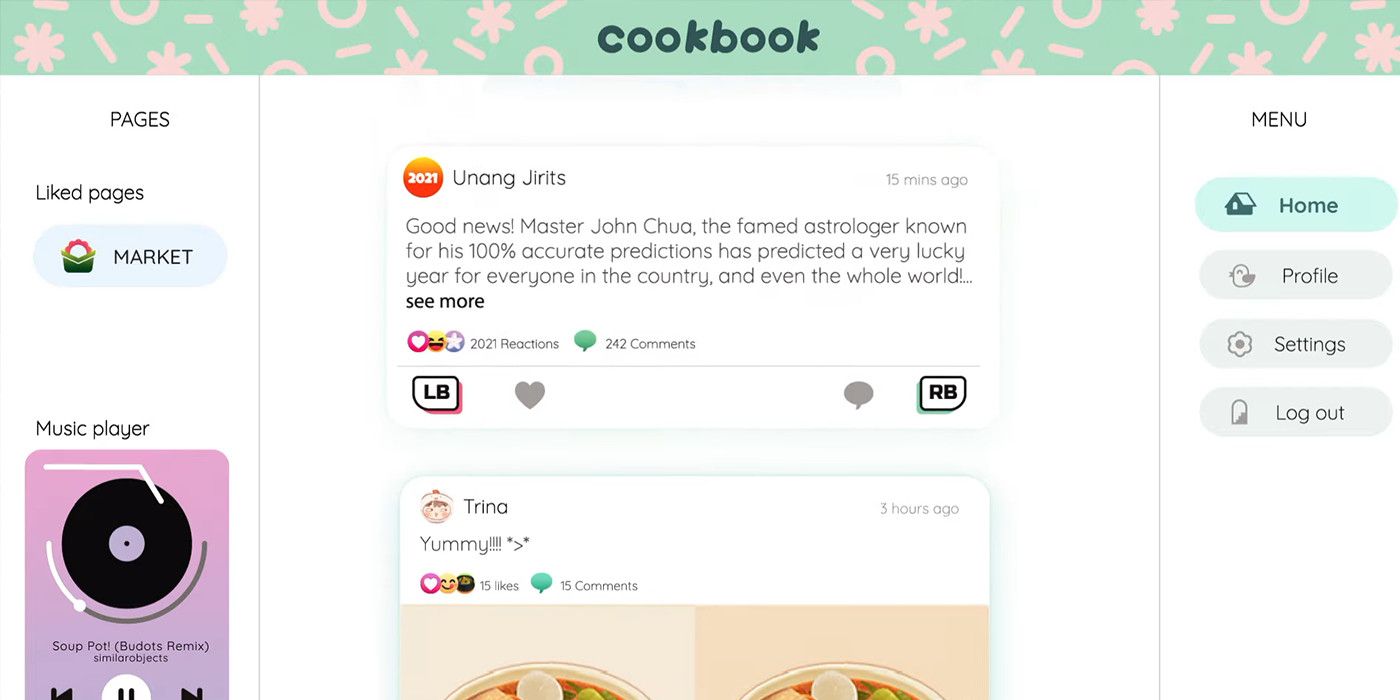During ID@Xbox's Twitch Gaming showcase, a chaotic new cooking game called Soup Pot was revealed. The developers, Chikon Club, were the first to refer to the game's chaotic nature, though Soup Pot could be better described as an incredibly freeing take on cooking video games. Personalization is a key part of cooking, and Soup Pot takes this into full consideration by giving players the freedom to cook with their own style by not confining players to making a recipe in a specific way.
Accessibility goes hand-in-hand with personalization, with cooking and video games both being mediums that anyone should be able to enjoy. Soup Pot takes this into full account, with a special focus on Chikon Club's attempts to highlight accessibility in their upcoming cooking title. The focus on accessibility is in line with Xbox's pledge for accessibility accountability, and several of Soup Pot's accessibility features fit right in with the game's charming presentation.
One of the first things mentioned by the development team was that they'd had several conversations on the topic of dyslexia. These conversations have seemingly impacted their design process, specifically with whether or not QTEs (quick-time events) would be used in the game and with certain font design choices being utilized to help dyslexic gamers with the large amount of reading that Soup Pot contains. According to one of the game's programmers, they were able to have these discussions with a fellow developer at Chikon Club who has dyslexia.
Chikon Club is also taking the time to design color-blind filters for their game. Color-blind filters have become one of the more widely adapted accessibility features for many games. Several of the Innovation in Accessibility nominees at last year's Game Awards were recognized for their color-blind options, among other accessibility features.
Chikon Club is also utilizing sound design to make Soup Pot enjoyable and playable for all types of gamers. The developers talked about the audio feedback that occurs during the cooking process in-game. Audio feedback is a vital tool that the visually impaired use to recognize different actions in-game. For example, there are many competitive Street Fighter V players who can use sound to know their character's position on-screen, which is incredibly important in fighting games.
Soup Pot seems to be a game that has been designed from the ground up for accessibility, which is something many modern titles should strive to do. This is evident when looking at how some of the game's charm has found its way into Chikon Club's unique accessibility solutions. As mentioned in the live stream, the ingredients in the game will actually shout their names to help players identify them.
From the features briefly touched on during the ID@Xbox showcase, it seems as though Chikon Club has taken a refreshing approach to accessibility. Instead of trying to include accessibility features into Soup Pot after they've already planned out the game, they've chosen to design game features with accessibility in mind. This allows Soup Pot's style and mechanics to feel effortlessly integrated with the accessibility features and gives the developers more options to ensure that anyone can enjoy Soup Pot.
Several key accessibility features were highlighted during the live stream, though more may be revealed once more information about Soup Pot comes out. A game about cooking being accessible fits with the spirit of cooking, with many being excited about Soup Pot's upcoming release. Soup Pot's chaotic nature is grounded in creative expression, with plenty of special care taken by Chikon Club to ensure everyone can express themselves.
Developed by Chikon Club and Chryse and published by Chikon Club, Soup Pot will be available for Xbox One, Xbox Series X|S and Steam in 2021.



